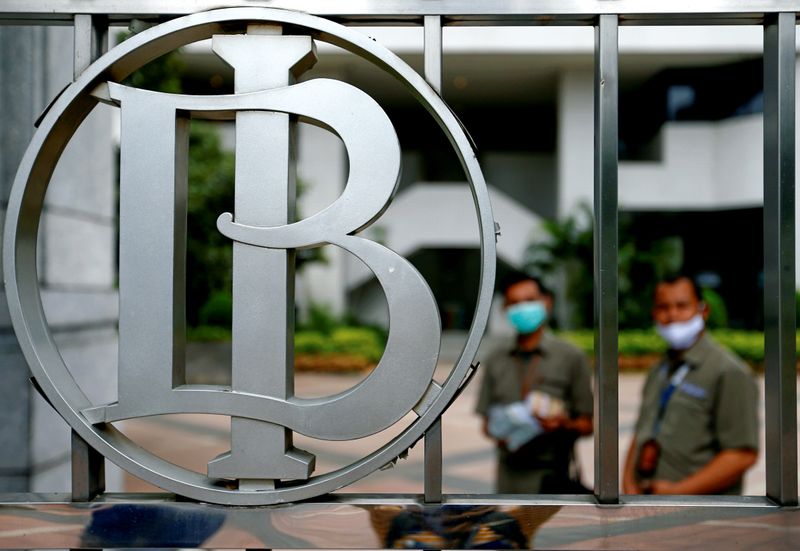By Shashwat Awasthi
BENGALURU (Reuters) - Foreign investors are unlikely to rush back into Indonesian markets until either it pays more for its debt or gives hard evidence it will not push the central bank into longer-term monetary financing of public borrowing, fund managers say.
External demand for government debt in Southeast Asia's largest economy, normally prized for 7% yields that are increasingly rare even in the world's emerging markets, has slumped since March with foreign holdings hitting a decade-low in August.
Such inflows are essential for Indonesia as it strives to fund government programmes to combat the coronavirus and restart an economy weakened by months of global and domestic restrictions.
But proposals lodged in parliament this month to increase ministers' influence over Bank Indonesia's (BI) strategy, at a time when it is helping finance emergency government borrowing, have made securing investors' faith more difficult.
The bill is still at an early stage and deliberations may take months. While politicians have played down the threats to the bank's independence, they also say moves in the bill to guarantee it will help buy government debt in emergencies are possible.
"Since the very large outflow we saw post the initial COVID spike... flows have really been very lacklustre in terms of foreign appetite for Indonesian bonds," said Stuart Ritson, an emerging market debt portfolio manager at Aviva (LON:AV) Investors.
"Certainly headlines like we've seen over the past few weeks which do question the central bank independence are likely to see investors be more cautious about allocating capital."
Ratings agency S&P Global told Reuters last week that Indonesia would need to manage the proposed changes carefully to prevent any pressure on its sovereign rating.
Encouraged by the normalisation of central bank bond buying in major economies over the past decade, ratings agencies and investors have given developing world governments more leeway this year on steps that would normally be taboo.
Bank Indonesia is already underpinning some of Jakarta's targeted bond issues.
But longer-term, such schemes carry the risk of drawing governments into additional debt that the International Monetary Fund advises against, worried about the kind of defaults and inflation that have plagued Hungary, Argentina, Ecuador and Lebanon.
To that end, the IMF had last month warned https://www.imf.org/en/Publications/ESR/Issues/2020/07/28/2020-external-sector-report Indonesia to manage its debt as it tackles the pandemic, although its public debt as a percentage of GDP remains way below that of many of its emerging market peers.
"From an economist's perspective, the proposed revision will be unequivocally bad as it would mean approving debt monetization," said Toshinobu Chiba, chief fixed income portfolio manager at Nissay Asset Management in Tokyo.
Thanks to years of rebuilding its reputation since a 1990s blow-out, yields on Indonesian 10-year bonds (ID10YT=RR) are well below those in South Africa, Brazil and Turkey.
Chiba said that while he was bullish on Indonesian fixed income, yields would need to rise to levels not seen since early July for him to be comfortable buying in.

"Our position is neutral right now but the 10-year bonds would be attractive if their yield rises to, say, around 7.2%," he said.